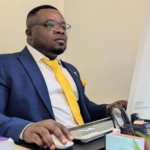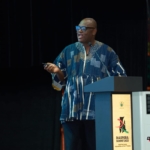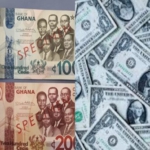
When John Dramani Mahama assumed the presidency in 2012, he was met with the cautious optimism of a nation searching for renewed purpose. Though I was not residing in Ghana at the time, I followed his administration closely, listening attentively to his policies and the spirit with which they were delivered. From 2012 to 2016, President Mahama remained a symbol of hope for many ordinary Ghanaians, except, of course, for sections of a political opposition whose rhetoric was more about entitlement than nation-building.
I recall a vivid debate in 2014 with a senior colleague about President Mahama’s commitment to the principle of “putting people first.” My conviction was met with dismissal and derision. Yet in 2016, I felt vindicated when the National Democratic Congress launched its manifesto in Sunyani, under the same theme: Putting People First.
My colleague, surprised by the resonance, later asked whether I had been in consultation with party leadership. My answer was simple: no. Like many Ghanaians, I was merely an observer, inspired by a leader whose priorities reflected the aspirations of the people.
During that manifesto launch, President Mahama declared: “Putting People First is the expression of our relentless effort to invest in sectors of our society with the view of empowering our people through better educational systems and opportunities; providing reliable and dependable healthcare arrangements; ensuring inclusiveness by protecting the most vulnerable in our society, thus creating reliable pathways for our youth to achieve their aspirations.”
These words captured more than a political promise, they embodied a philosophy of leadership rooted in human development. At the heart of his vision was the Ghanaian youth: the future custodians of the nation. Mahama understood that no country can progress without first equipping its young people with education, skills, and opportunities.
In contrast, the opposition of that period seemed preoccupied with seniority, hierarchy, and the politics of exclusion. Their rhetoric fostered a generational gap, ignoring the urgency of youth empowerment. Unsurprisingly, Ghana’s young people responded by seizing the power of social media to express their frustrations, dismantling slogans of arrogance and entitlement that had dominated political discourse.
A truly visionary leader is one who recognizes that the future of a nation is held in trust for its youth. President Mahama has consistently demonstrated this understanding. His approach echoes global traditions of forward-looking governance, much like Britain’s post-war leaders, from John Major to Tony Blair, Gordon Brown, and David Cameron, who invested in shaping future generations. Mahama’s philosophy is no different: a quiet but steadfast commitment to building a Ghana that places its youth at the center of national development.
Since 2012, I have admired not only his leadership style but also his humility and accessibility. Unlike some leaders who alienate the youth with intimidating rhetoric, Mahama has spoken with clarity, inclusivity, and purpose. For Ghana’s younger generation, he has been more than a president; he has been a mentor and a believer in their potential.
History will judge him as one of the few modern African leaders who placed unwavering faith in the youth. His legacy will endure not merely for his policies, but for the confidence he instilled in a generation to rise, lead, and build.
Ayeekoo, Mr President. Your legacy lives on, not just in infrastructure or manifestos, but in the hope you ignited in Ghana’s youth.




